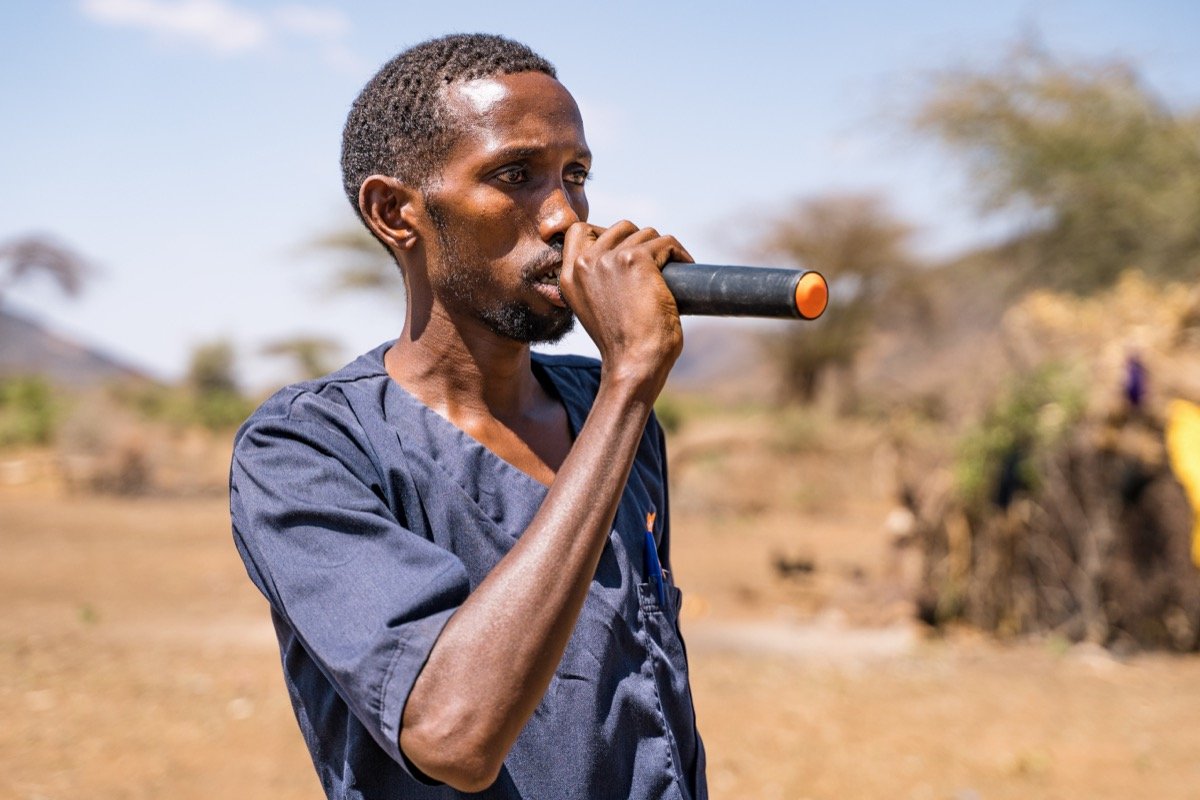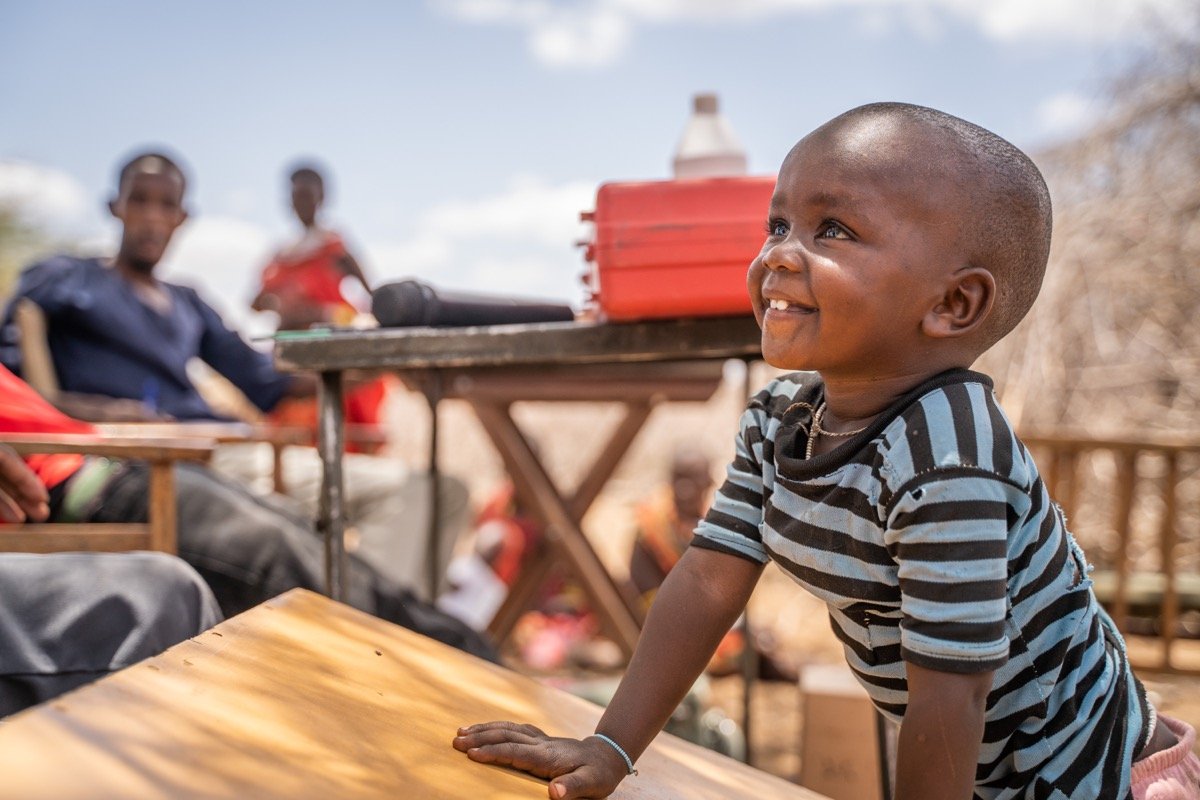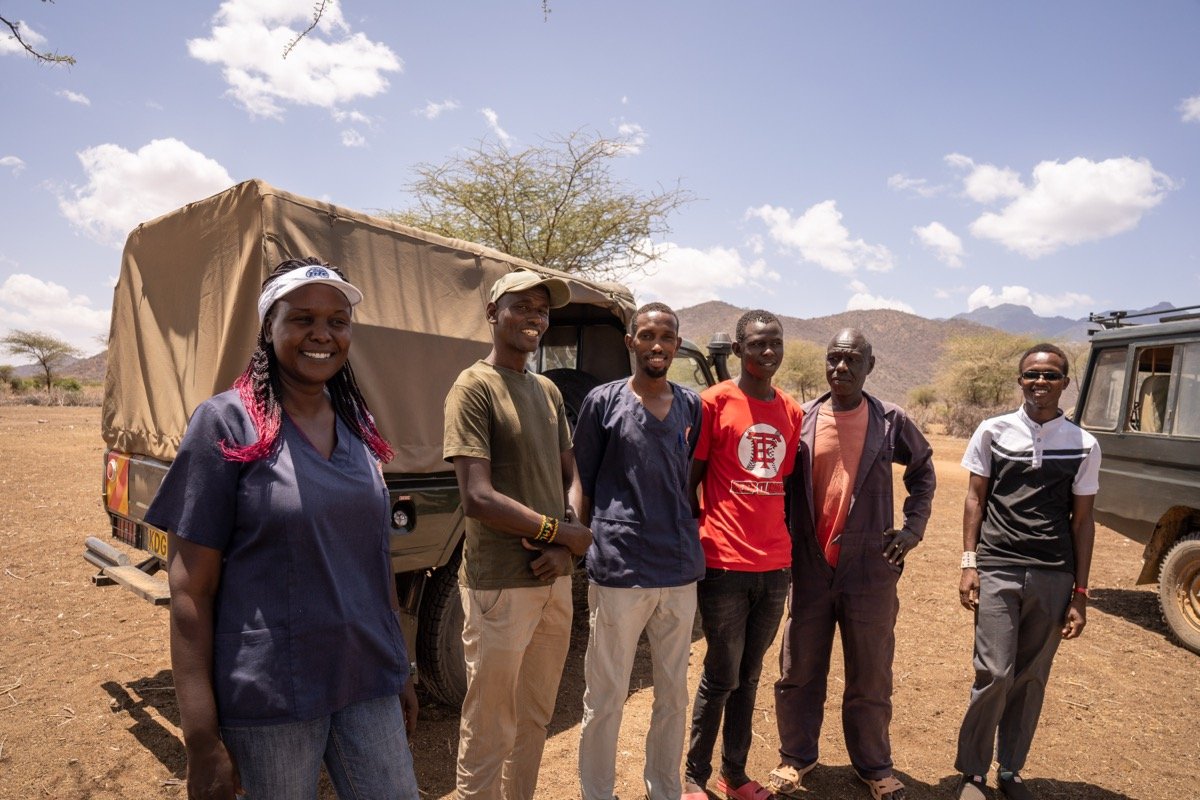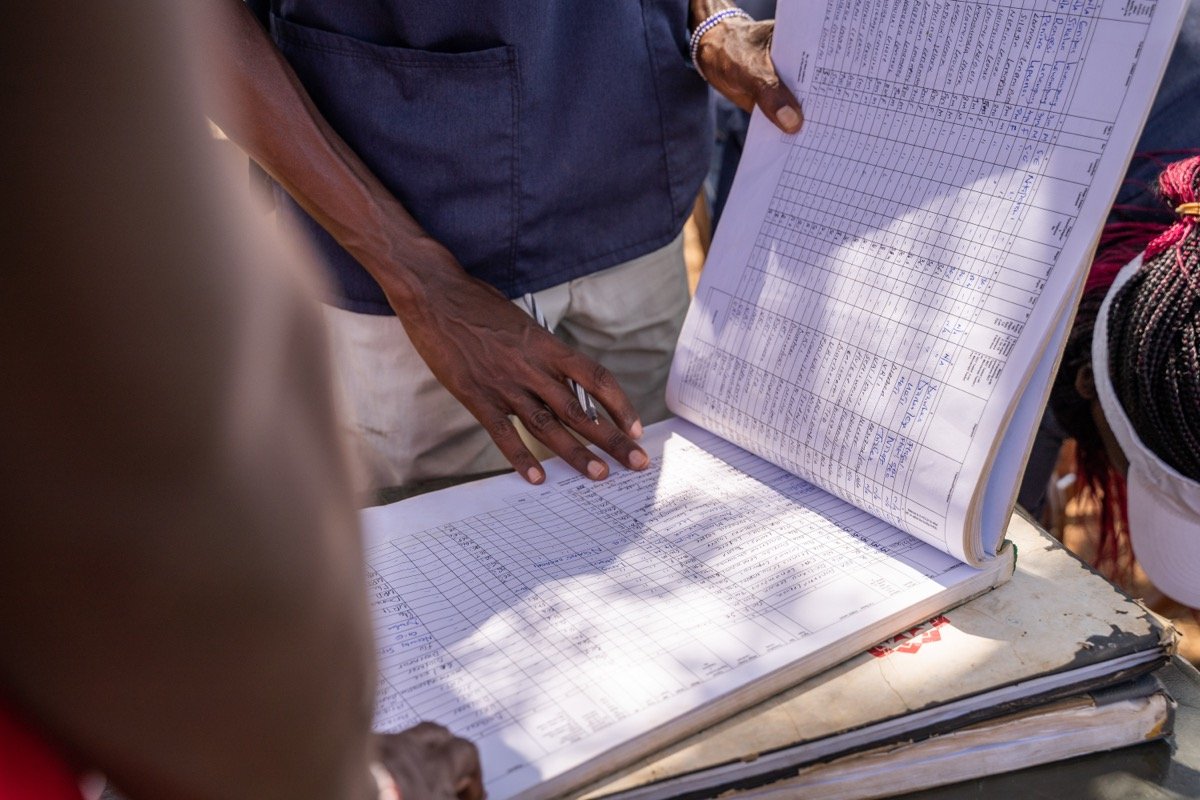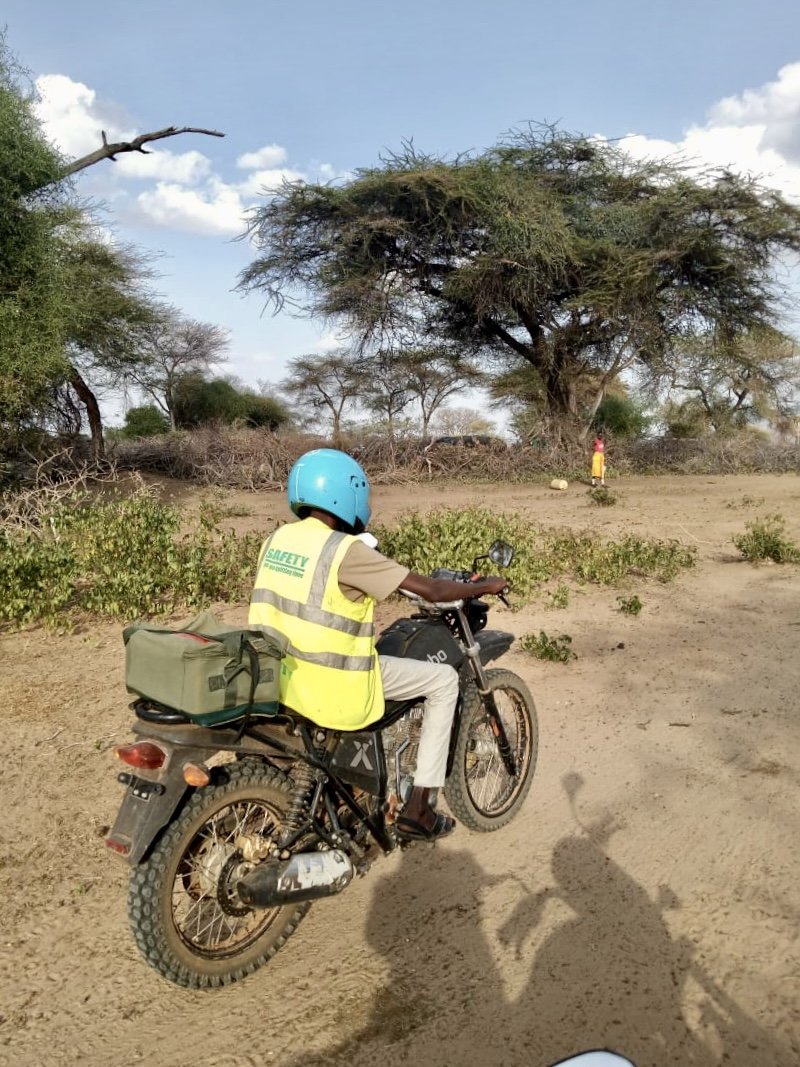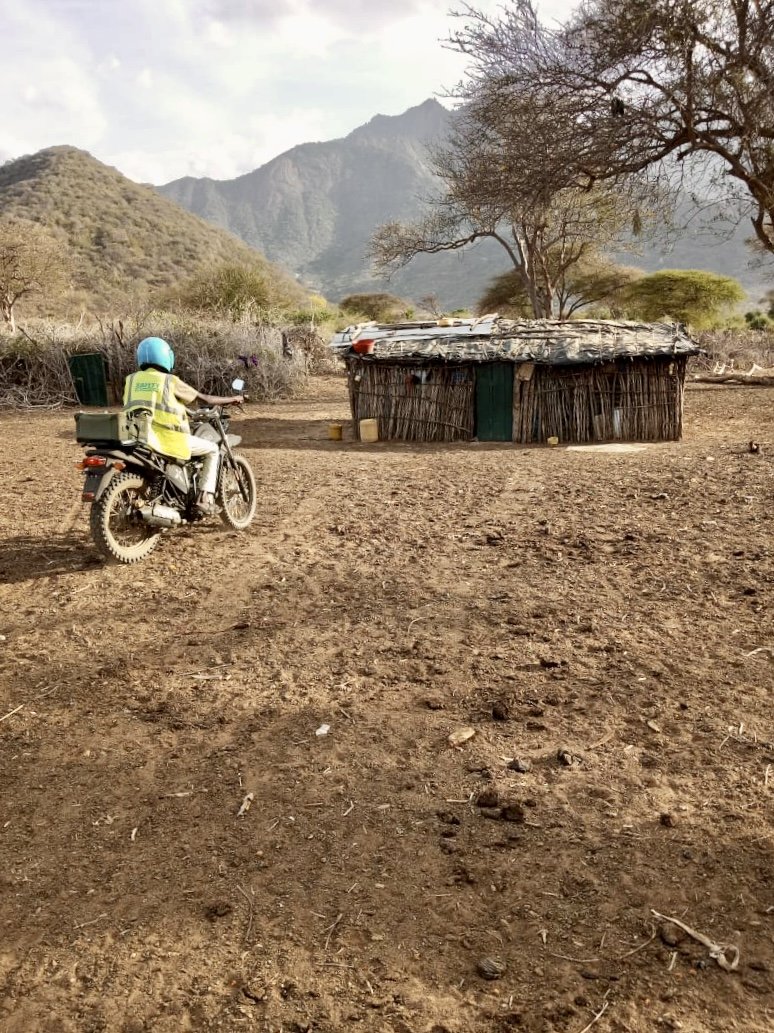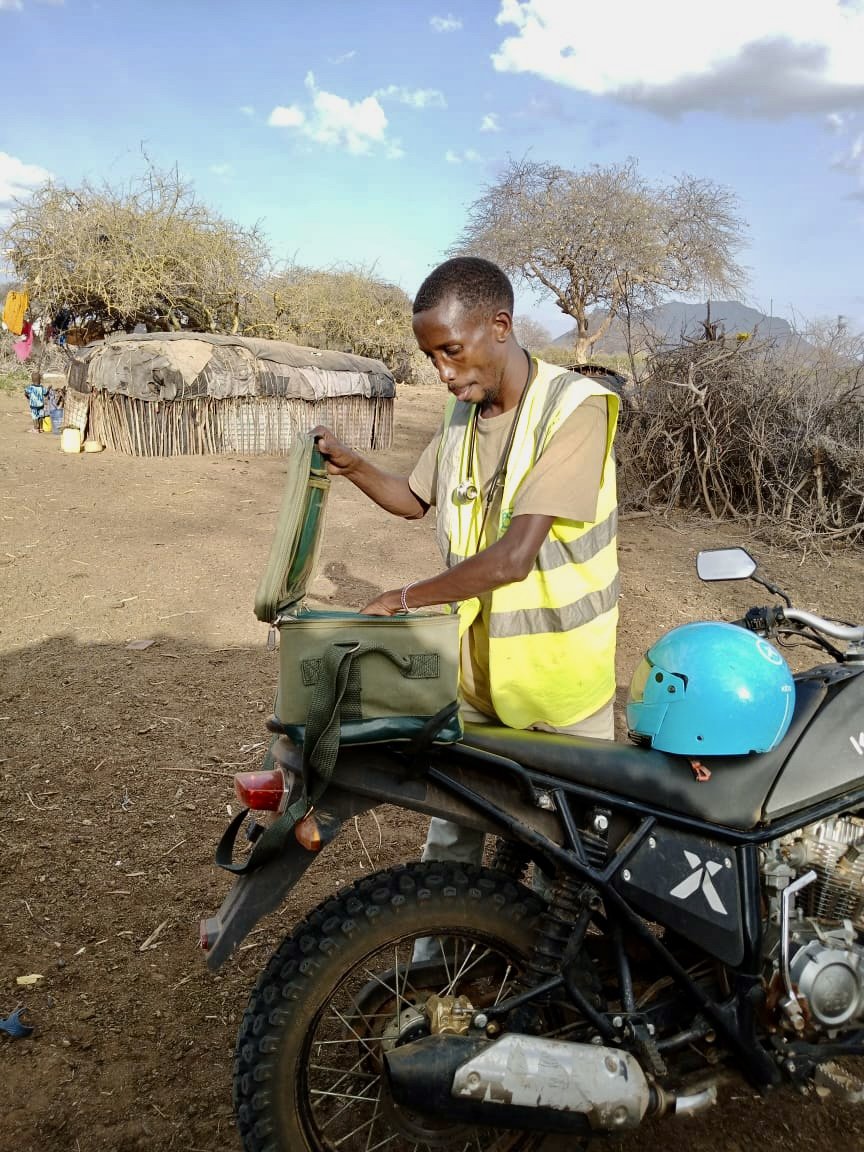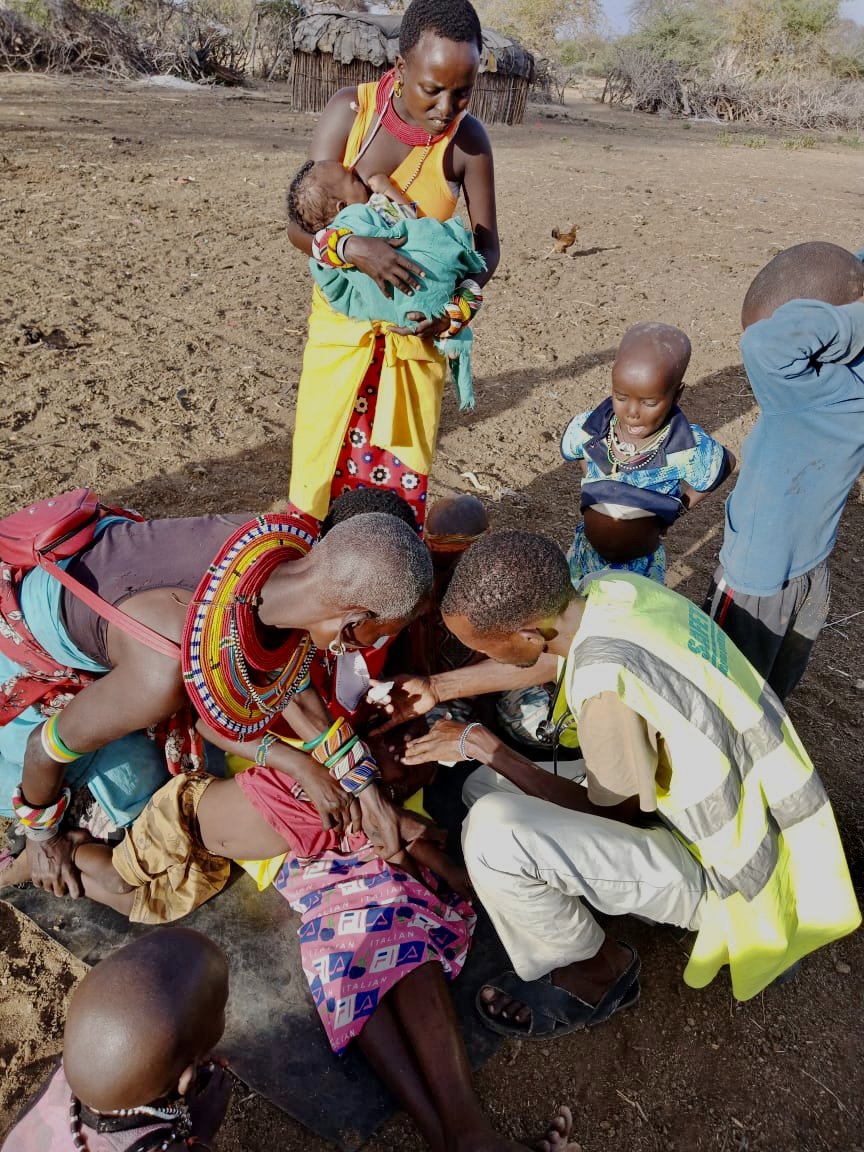Meet Nurse Parito
Meet our French speaking, Samburu Nurse, Parito Lenairoshi.
As a local Samburu from Namunyak Conservancy, being born and having grown up here, Parito’s empathy and passion for serving his community is unparalleled.
Five years ago, when anyone who lives in Namunyak Conservancy got sick, they had to walk 30km to the nearest clinic in Wamba, which involved trekking up a steep, mountainous pass. This included pregnant mothers, children and anyone suffering injury. Thanks to the Nomadic Healthcare Program and Nurse Parito, things are very different today.
Being Samburu himself, and having grown up here in Namunyak Conservancy, Parito understands the health challenges that the community face better than anyone. Along with the healthcare team, he travels to all corners of Namunyak Conservancy to deliver world-class paediatric and maternal care, serving to underpin a safe & healthy state of being for mother’s, newborns and children.
What is your name and surname?
My name is John Rakmo Parito. My surname is Lenairoshi.
Where were you born and where did you grow up?
I was born and grew up in Wamba, here in Samburu East, Namunyak Conservancy.
What is your current role at the Sarara Foundation?
I joined the Sarara Foundation as a nurse on the 3rd of August 2020.
Parito consulting with a mamma and her child
What led you to working at the Sarara Foundation?
I grew up looking after my grandfather's livestock in Reteti area for several years before I started school. I've always had a desire to work among the Samburu rural communities in Northern Kenya and I was lucky enough to have studied my nursing career under a free scholarship (the beyond Zero Trust) sponsored by the First Lady, H.E Margaret Kenyatta. Her primary aim was to promote the wellbeing of mothers and newborns in vulnerable areas in Kenya. This proved to be a dream come true for me as I've always been passionate about working among the rural communities.
Where did you work before and how did you find out about Sarara?
Before joining Sarara Foundation, I briefly worked with the Kenya Wildlife Service, in Nairobi. I found out about the Sarara Foundation on social media from one of my friends. I remember occasionally coming across some information on the internet about The Sarara Foundation prior to joining.
Briefly describe what your typical day looks like.
Typically I wake up as early as 5am to prepare for the day. I order and assemble the drugs and equipment to be used for the day and load them in the vehicle. On arrival in the manyatta (which we normally notify a day earlier) I make a the public address via our speaker to alert the community of our presence.
Then, screening and treatment of the patients begins i.e kids under 5, pregnant and lactating mothers. I also respond to any other emergencies that may arise in the course of the day/night.
When did you decide that you wanted to work in healthcare?
I've always wanted to work in healthcare since I was young, as my late uncle (RIP) who was himself a nurse always persuaded me to do nursing, his wife was also a nurse. I was offered an opportunity for scholarship by the Consolata Sisters in Wamba to do nursing but I unfortunately lost my uncle during that period, and I decided to go to University instead, and took a different career (University of Eldoret, Uasin Gishu County).
After completing the university I still got a scholarship to study nursing at the Kenya Medical Training College, and I never hesitated but grabbed the opportunity as I regarded it as second chance.
What have been some of the most rewarding aspects of working as a nurse in Namunyak Conservancy?
The most rewarding aspect of my work now is working in healthcare among the same communities where I used to look after the livestock at early age. I find it rewarding.
On the other hand, what specific challenges have you encountered while working as a nurse in Namunyak Conservancy?
The lack of capacity to provide healthcare to the general populations in the community. There’s tremendous need in the community. We currently handle some specific cohorts for emergency issues. I’d also include the poor communication (lack of internet) that occasionally interrupts smooth working days and subsequently delays the passing of vital information and messages.
Parito visiting a manyatta on a motorbike for emergency call-out.
What do you think, or hope, the results of your and the Nomadic Healthcare Programs work will be? What do you hope to see in the future?
Our work, together with the rest of the team would definitely lead to healthy generations, as more pregnant mothers now enjoy our services from as early as 12 weeks of pregnancy, all the way to delivery with routine care and follow up. Also, the elimination of the long distances that the community used to walk in search of health services as these are now taken to them... right in their homesteads!
What is / are the thing(s) you need most at the moment?
We require supplements for some vulnerable lactating mothers (poor nutrition) and also an immunisation system to be set up, to boost disease prevention. Because of the remoteness of our location, internet access and reception is a major problem and makes information sharing and routine reporting really difficult.
Quick Fire with Parito
Parito and Dorcas on a Safari
What do you enjoy doing after work?
I enjoy watching soccer ⚽.
Do you have a favourite animal?
My favourite animal is definitely giraffe!
How many languages do you speak?
I speak 3 languages: Samburu, English and French. I also speak some basic Italian.
Do you have a family of your own?
Yes, I do indeed have a family of my own.
What’s the one thing you think that people don’t know about the Samburu Culture?
I think people still don't know that there's quite a big difference between the Samburu and Maasai cultures.
Support Parito and the Nomadic Healthcare Program
Any donation, small or large, helps us to continue our work on the ground.
Our incredible healthcare team at the Sarara Foundation:
Kalamon Pakiyio, John Parito, Dorcas Lemargeroi




